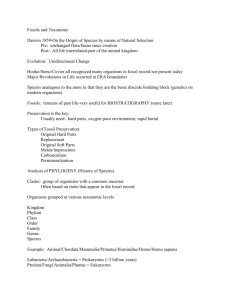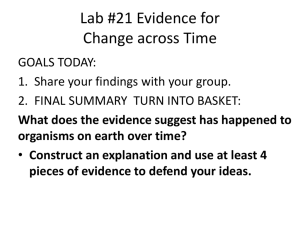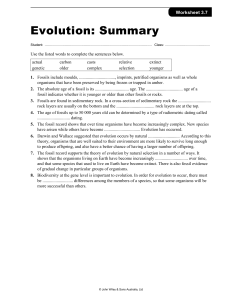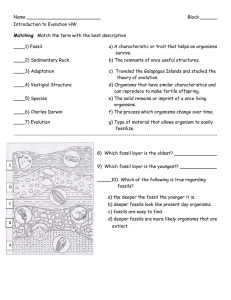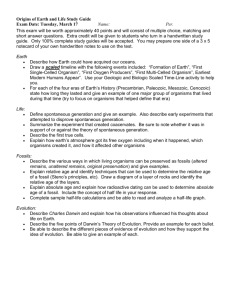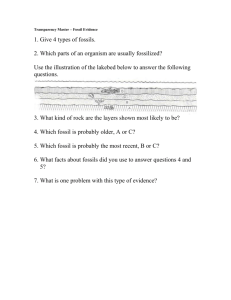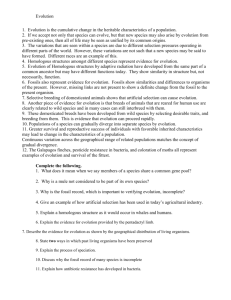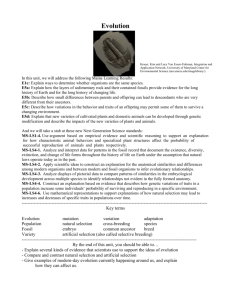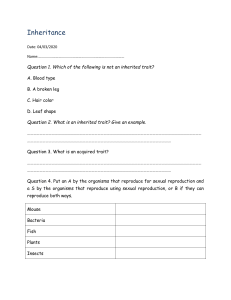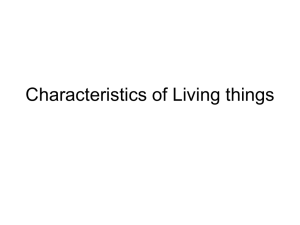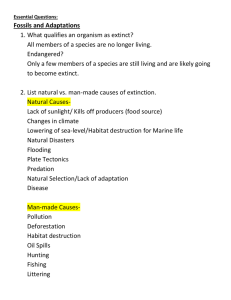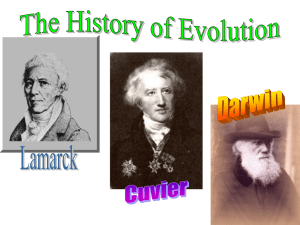Evolution and natural selection
advertisement
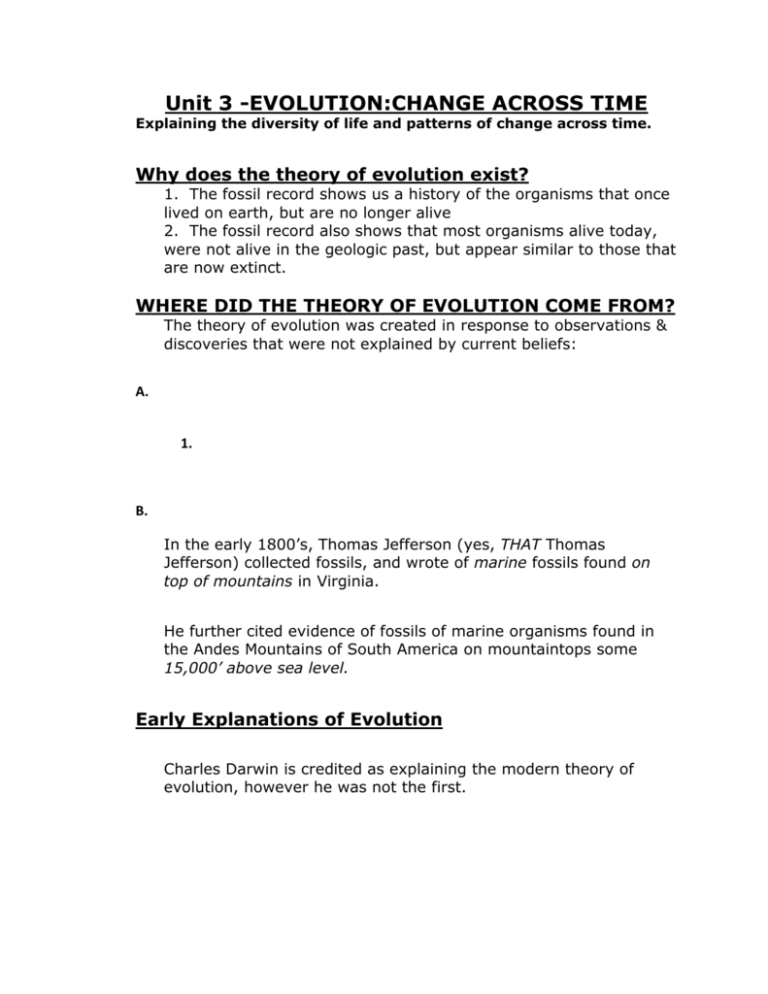
Unit 3 -EVOLUTION:CHANGE ACROSS TIME Explaining the diversity of life and patterns of change across time. Why does the theory of evolution exist? 1. The fossil record shows us a history of the organisms that once lived on earth, but are no longer alive 2. The fossil record also shows that most organisms alive today, were not alive in the geologic past, but appear similar to those that are now extinct. WHERE DID THE THEORY OF EVOLUTION COME FROM? The theory of evolution was created in response to observations & discoveries that were not explained by current beliefs: A. 1. B. In the early 1800’s, Thomas Jefferson (yes, THAT Thomas Jefferson) collected fossils, and wrote of marine fossils found on top of mountains in Virginia. He further cited evidence of fossils of marine organisms found in the Andes Mountains of South America on mountaintops some 15,000’ above sea level. Early Explanations of Evolution Charles Darwin is credited as explaining the modern theory of evolution, however he was not the first. Theory of Acquired Characteristics A. B. C. D. E. For example, Lamarck believed that giraffe’s necks became longer as they stretched for food and that trait was passed on the offspring. Today, we know that the theory of acquired characteristics is not correct. If it were the case, children of body builders would be born big and buff like their parents and not need to work out. (for example). Characteristics that are found within our genes are the only ones that can be passed from generation to generation. WHAT IS “EVOLUTION” This misconception exists that evolution means that “humans came from monkeys”. The accurate definition is: 1. a. How is evolution possible? Evolution is explained by four central points: 1. 2. 3. 4. What is “Natural Selection”? We all have heard Natural Selection summarized as “The Survival of the Fittest”. This simply means that the organisms with the characteristics that make them more likely to survive and reproduce will survive and reproduce. Thus, the genes in the parents for those traits will be passed on to future generations, increasing the number of individuals that have the “good” trait. How Does Natural Selection Work? 1. 2. 3. 4. 5. Point #1: All Species Have Genetic Variation 1. 2. 3. Point #2: The Environment Presents Challenges to Survival The environment places many stresses and challenges on individuals 1. 2. 3. 4. 5. Point #3: Overproduction of Offspring. 1. 2. Points #4 & 5: Increase of the beneficial characteristic over Time 1. 2. 3. 4. WHAT CONTROLS EVOLUTION? The environment controls the speed and direction of evolution. 1. 2. 3. How Evolution Looks Over Generations of Time.
